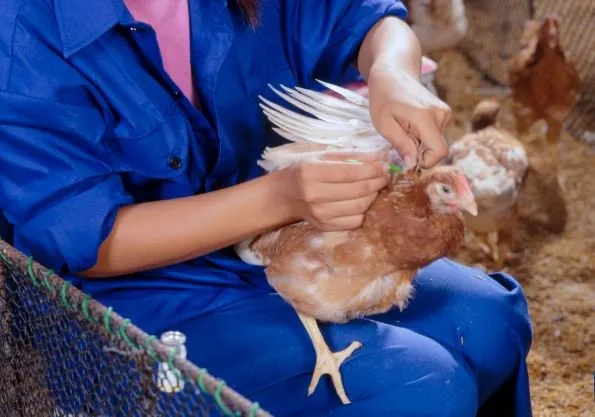Poultry vaccination is an important activity in managing flock health and product quality in addition to farm biosecurity, hygiene, and sanitation.
A good vaccination programme if done right, prepares chickens for any disease challenges in the future.
Chickens are affected by many diseases Newcastle, infectious bursal disease, bronchitis, and Mareks, which can wipe the entire flock leaving a farmer in losses.
This highlights the need to always engage a poultry veterinarian for guidance on matters relating to chicken health.
Wilfred Mutisya, a Kenya Agricultural and Livestock Research Organization (KALRO) veterinary doctor based at the Dairy Research Institute (DRI) in Naivasha, says using incubators to hatch eggs is one of the best ways farmers can reduce the entry of pathogens to their farms.
He explains that soon after hatching, the birds should be given the Newcastle jab, emphasizing strict adherence to the stipulated vaccination schedule for chickens.
According to the schedule, bursal disease (Gumboro) and Mareks vaccination should also be administered on day one.
Things I changed on my poultry farm and increased egg production instantly
When the chicks are 10-12 days old, vaccination against Newcastle and infectious bronchitis should be administered through water. These are vaccination boosters.
At 18-21 days, a booster vaccination against Gumboro should be administered through water. This is followed by the fowl pox vaccine at six weeks.
At eight weeks, the fowl typhoid vaccine is administered through intramuscular injection followed by the Newcastle disease vaccine either through eye drops or drinking water, at 18 weeks.
“Never vaccinate a sick chicken. Consult your veterinary/livestock expert for a detailed program in your area.’’ The schedule warns.
Vaccinating sick chickens is said to be useless as the birds’ immune system may not respond positively by producing enough protective antibodies. It is advisable that any sick bird be treated first before any vaccination is done.
“These steps ensure that the birds attain full immunity,” Mutisya says.
The expert lists parasites as the other nightmare in poultry farming, as they suck blood, leading to anaemia and cause stress to the chickens.
“There are two categories. These are external and internal. Fleas top the list of external parasites. They irritate the birds, causing them stress. Once the birds are stressed, they cannot produce to their full potential,” he says.
He advises farmers to apply insecticides on chicken coops to control parasites.
Included in internal parasites are roundworms and tapeworms, among others. “Deworming should be done from 19 weeks with a repeat after three months,” advises Dr Mutisya.
To control diseases, farmers invest in disinfectant footbaths to kill harmful pathogens that can be transmitted by shoes, vehicles, or equipment.









